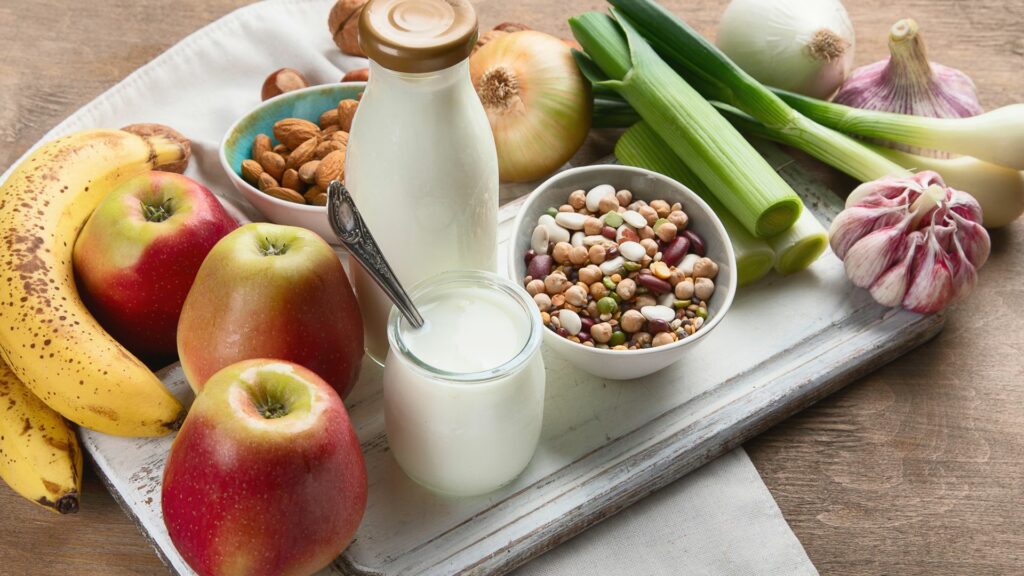Introduction:
Irritable Bowel Syndrome (IBS) is a chronic gastrointestinal disorder characterized by abdominal pain, bloating, and changes in bowel habits. It is estimated to affect approximately 10-15% of the global population. While the exact cause of IBS is unknown, research suggests that imbalances in the gut microbiota may play a significant role. Probiotics, which are live microorganisms that confer health benefits when consumed in adequate amounts, have shown promise in managing the symptoms of IBS. In this comprehensive guide, we will delve into the mechanisms by which probiotics can help fight IBS and discuss the different strains and formulations that have demonstrated efficacy in clinical studies.
Understanding IBS and the Gut Microbiota:
Irritable Bowel Syndrome is a complex condition that involves various factors, including altered gut motility, visceral hypersensitivity, and disturbances in the gut-brain axis. Emerging evidence suggests that dysbiosis, an imbalance in the composition and function of the gut microbiota, may contribute to the development and exacerbation of IBS symptoms. The gut microbiota is a vast community of microorganisms residing in the gastrointestinal tract that plays a crucial role in digestion, immune function, and overall health.
How Probiotics Work:
Probiotics exert their beneficial effects on IBS through multiple mechanisms:
a) Restoration of Gut Microbiota: Probiotics can help restore the balance of beneficial bacteria in the gut, thus reducing dysbiosis and inflammation.
b) Modulation of Immune Response: Probiotics interact with the immune system in the gut, regulating the inflammatory response and strengthening the gut barrier function.
c) Production of Bioactive Compounds: Some strains of probiotics produce bioactive compounds, such as short-chain fatty acids, which have anti-inflammatory properties and promote intestinal health.
d) Neurotransmitter Regulation: The gut microbiota communicates with the central nervous system through the gut-brain axis. Probiotics can influence neurotransmitter production, such as serotonin, which plays a role in gut motility and mood regulation.
Probiotic Strains for IBS:
Not all probiotic strains are equally effective in managing IBS symptoms. Several strains have shown promise in clinical trials:
a) Bifidobacterium infantis: This strain has been extensively studied and has demonstrated efficacy in reducing abdominal pain, bloating, and improving bowel habits in IBS patients.
b) Lactobacillus plantarum: Studies have shown that L. plantarum can alleviate IBS symptoms, including pain and bloating, and improve quality of life.
c) Saccharomyces boulardii: This probiotic yeast has shown benefits in IBS-D (diarrhea-predominant) patients by reducing stool frequency and improving consistency.
d) Lactobacillus acidophilus: L. acidophilus has been found to improve overall symptoms and bowel habits in IBS patients, particularly those with constipation-predominant symptoms.
Choosing the Right Probiotic:
When selecting a probiotic for IBS, several factors should be considered:
a) Strain Specificity: Look for probiotics that have been studied and proven effective for IBS symptoms. The strain(s) should be clearly labeled on the product.
b) Formulation: Probiotics are available in various forms, including capsules, tablets, powders, and fermented foods. Choose a formulation that suits your preference and convenience.
c) Colony Forming Units (CFUs): CFUs indicate the number of viable bacteria in a probiotic product. Opt for products with sufficient CFUs to ensure therapeutic efficacy.
d) Quality and Shelf Life: Check for third-party testing and ensure the product has a viable shelf life remaining.
Incorporating Probiotics into Your Routine:
To maximize the potential benefits of probiotics for IBS, it is essential to incorporate them effectively:
a) Consistency: Take probiotics regularly and consistently as recommended by the product label or healthcare professional.
b) Diet and Lifestyle: Support the growth of beneficial bacteria by consuming a balanced diet rich in fiber and reducing stress levels through exercise, relaxation techniques, and adequate sleep.
c) Combination Therapy: Probiotics can be used in conjunction with other therapies, such as dietary modifications and medications, to optimize symptom management.
Consultation with Healthcare Professionals:
It is crucial to consult with a healthcare professional, such as a gastroenterologist or a registered dietitian, before starting any new supplementation regimen. They can provide personalized guidance based on your specific symptoms and medical history.
Conclusion:
Probiotics offer a promising approach for managing the symptoms of Irritable Bowel Syndrome by targeting the gut dysbiosis and modulating the gut-brain axis. While probiotics are generally considered safe, individual responses may vary, and it is essential to choose the right strains and formulations based on clinical evidence. By incorporating probiotics into a comprehensive treatment plan that includes dietary modifications and lifestyle changes, individuals with IBS may experience improvements in their symptoms and overall quality of life.

